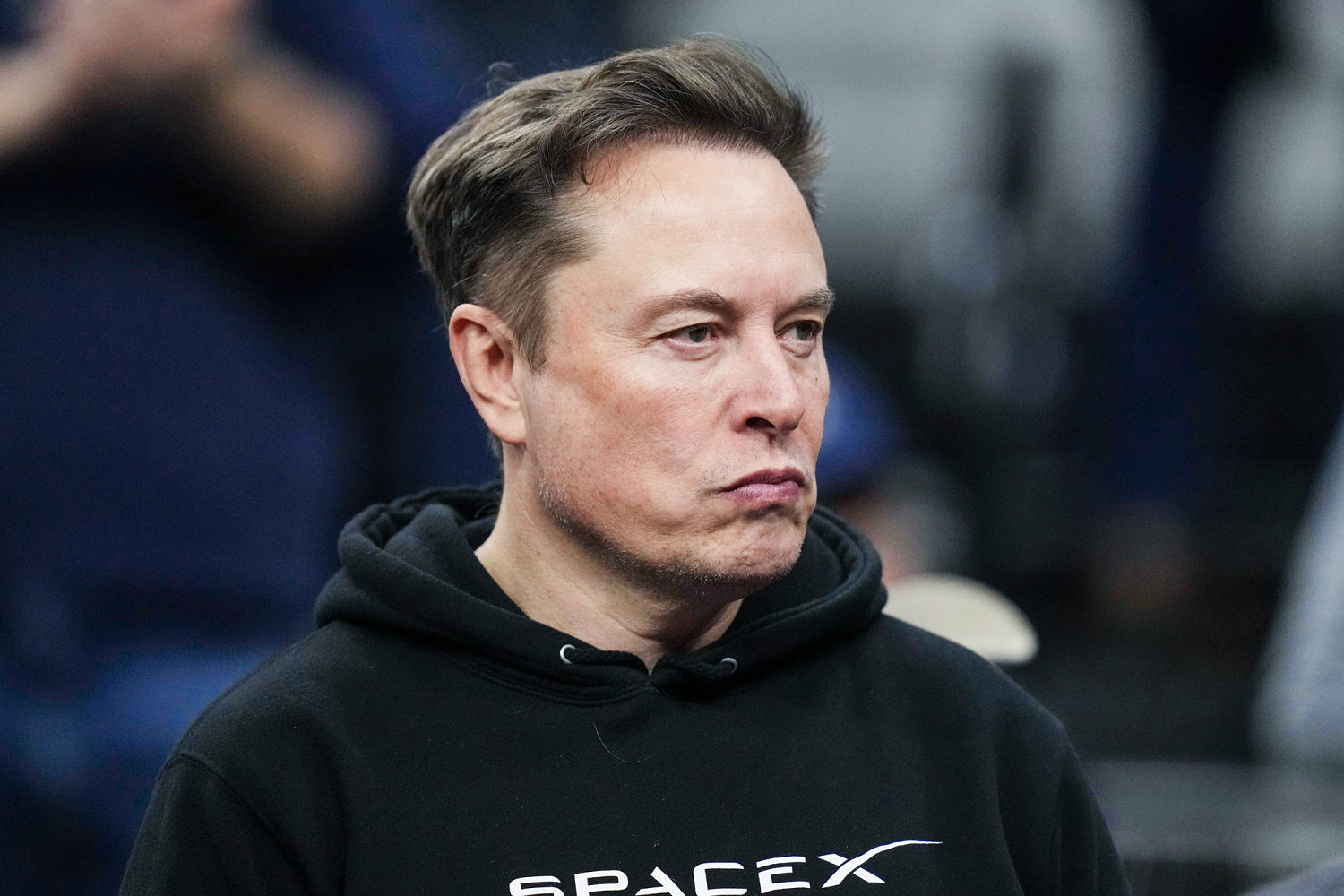
Tesla reported a sizable drop in profit and revenue Tuesday and warned that the political environment along with the Trump administration’s tariff plans were challenges for its business.
The report comes as CEO Elon Musk has faced a swell of opposition for his work with President Donald Trump, which has made Tesla a growing target for protests and even vandalism. Musk has acknowledged that his move into politics has hit the company’s stock price.
The electric automaker — which is increasingly trying to diversify into high-tech products like robots — said profits fell 71% to $409 million compared to $1.39 billion during the same quarter one year ago.
Shares of Tesla were little changed in after-hours trading. The company has lost 50% of its value from its mid-December peak.
The company said “uncertainty in the automotive and energy markets” associated with “rapidly evolving trade policy,” along with “changing political sentiment,” could have “a meaningful impact on demand for our products in the near-term.”
It also said updates to its best-selling Model Y that affected its availability on the market contributed to the shortfall.
“We remain committed to expanding our business model to include delivering autonomous robots across multiple form factors and use cases – powered by our real-world AI expertise – to our customers and for use in our factories, as we navigate these headwinds,” it said.
It said it was not prepared to provide guidance for performance the rest of the year — a decision other companies are also making — due to broad trends including the impact from tariffs. It said it would “revisit” guidance for 2025 in three months.
“It is difficult to measure the impacts of shifting global trade policy on the automotive and energy supply chains, our cost structure and demand for durable goods and related services,” the company said in the outlook section of its report.
The earnings report comes as Musk faces pressure from many sides, including from investors who’d like him to pay more attention to the company and from his job in the Trump administration where he’s volunteered to slash government programs.
Musk has kept his CEO roles at Tesla and SpaceX even while spending much of his time with President Donald Trump and his Department of Government Efficiency (DOGE), the group charged with reducing federal spending.
A CNBC All-America Economic survey released earlier Tuesday underscored the depth of the negative sentiment toward both Tesla and Musk: 47% of the public had a negative view of the company versus 27% positive, and half had a negative view of Musk, compared with 36% who saw him positively.
“Tesla has become a political symbol around the world,” said Daniel Ives, managing director at Wedbush Securities, in an interview on CNBC after the earnings report was released.
Ives said the political controversy has hurt Tesla not only by reducing demand for vehicles but also because Tesla has become a target for retaliatory tariffs by other nations such as China.
The earnings report did not explicitly mention the repeated vandalism against Tesla vehicles or the peaceful protests at its showrooms, instead citing the “changing political sentiment” as a headwind for demand.
A key question for Tesla, Musk and the Trump administration is how long Musk remains in his White House position. His job as a “special government employee” is time-limited by law to 130 days during any period of 365 consecutive days, which could put his legally mandated endpoint as early as late May. Musk told Fox News this month that he believed “most” of his work would be done by that deadline.
A conference call with Wall Street analysts was scheduled for 2:30 p.m. ET. Musk sometimes joins such calls, but not always.
This is a developing story. Check back for updates.
